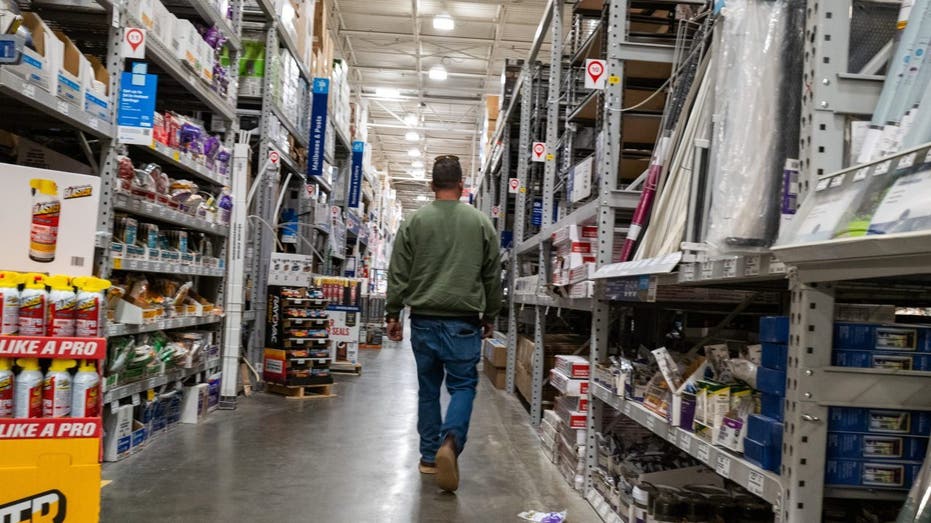The Claman Countdown panelists Scott Redler and Michael Landsberg give their take on the possibility of a recession.
U.S. consumer confidence reached a six-month high in August as optimism about the economy rose, although Americans are increasingly anxious about the labor market after the unemployment rate rose last month.
The better-than-expected consumer confidence reading from the Conference Board’s report reflected improved perceptions of business conditions in the next six months and suggested that the odds of the U.S. economy experiencing a recession continued to decline.
Americans’ unease with the labor market comes after the unemployment rate increased to 4.3% last month, which is near a three-year high. Federal Reserve Chair Jerome Powell and central bank policymakers have shifted their focus from tamping down inflation, which is trending toward the Fed’s 2% target, to the labor market as Powell signaled on Friday that interest rate cuts are coming.
“Consumers continued to express mixed feelings in August,” said Dana M. Peterson, chief economist at The Conference Board. “Compared to July, they were more positive about business conditions, both current and future, but also more concerned about the labor market.”
FED’S POWELL: ‘THE TIME HAS COME’ FOR INTEREST RATE CUTS
The Conference Board’s report showed that consumer confidence edged up even as consumers’ concerns about the labor market rose. (Photo by Robert Nickelsberg/Getty Images / Getty Images)
“Consumers’ assessments of the current labor situation, while still positive, continued to weaken, and assessments of the labor market going forward were more pessimistic. This likely reflects the recent increase in unemployment. Consumers were also a bit less positive about future income,” Peterson added.
The Conference Board’s consumer confidence index rose to 103.3 this month, the highest level since February, from an upwardly revised 101.9 in July. Economists polled by Reuters had forecast the index would be little changed from the previously reported 100.3.
FED’S ACTIONS SPOKE LOUDER THAN WORDS TO MARKETS IN FIGHT AGAINST INFLATION, RESEARCH FINDS

The Federal Reserve has signaled it will likely cut interest rates next month and ease monetary policy. (Photographer: Michael Nagle/Bloomberg via Getty Images / Getty Images)
The group’s Expectations Index, which is based on consumers’ short-term outlook for income, business and labor market conditions, improved to 82.5 – up from 81.1 in July and the highest level since August 2023. A reading below 80 is usually a signal of an upcoming recession and Peterson noted that the “proportion of consumers predicting a recession was stable and well below the 2023 peak.”
The survey’s so-called labor market differential – which is derived from respondents’ views on whether jobs are plentiful or hard to get – fell from 17.1 in July to 16.4, the narrowest the differential has been since March 2021. This particular metric correlates to the unemployment rate in the Labor Department’s monthly jobs report, which has shown unemployment rising for four consecutive months.
“While we wouldn’t necessarily use it to predict month-to-month changes in the unemployment rate, the fact that it keeps worsening is not a good development,” said Abiel Reinhart, an economist at J.P. Morgan, in a Reuters report. “The message here is that the July unemployment increase was not just a fluke.”
US FIRMS’ ‘LOW FIRING’ APPROACH COULD TURN TO MORE LAYOFFS, FED’S BARKIN WARNS

Consumer confidence reached the highest level in six months in The Conference Board’s latest report. ( (Photo by Spencer Platt/Getty Images) / Getty Images)
Consumers were increasingly optimistic about inflation falling, as the survey found their 12-month inflation expectations dropped to 4.9%, the lowest level since March 2020, from 5.3% in July.
Additionally, consumers were more pessimistic about their income prospects over the next six months amid the softening labor market. The share of consumers expecting their incomes to increase fell to 16.9% from 17.2% in July, while those anticipating a decline rose to 12.7% from 11.6% a month ago.
Newsfromrss.com
Reuters contributed to this report.


